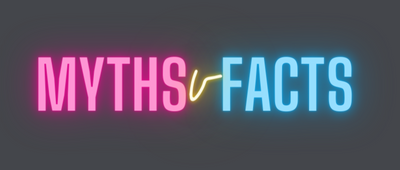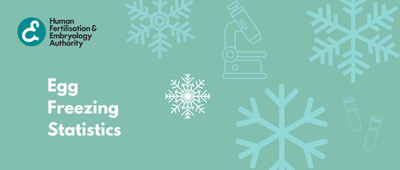Key Points: Male Fertility, Sperm Count and Essential Vitamins
- A test of sperm quality is an essential measure of male fertility
- Nutrition and environmental factors can impact a sperm count test
- Vitamins and Minerals can support healthy sperm quality
What is Semen Analysis and why is it important?
The most important measure of male fertility is sperm quality. This involves a semen analysis / test of sperm concentration (how much sperm is in the semen, Sperm count Test), a test of sperm morphology (the physical shape of the sperm) and a test of sperm motility (the movement and ability to swim), which are all required to assess the overall quality of sperm.
Research has suggested that the quality of male sperm has deteriorated drastically in the last 40 years globally and may be affected by factors such as obesity, a high-fat diet as well as other environmental factors.
How can you improve the quality of a Sperm Count Test?
Whilst some male infertility disorders can be genetic or may be a result of a physiological problem, the diet and the nutrients you consume can have an impact on the quality of your sperm, owing to how our bodies metabolise and use the vitamins and minerals to function correctly.
Semen analysis research has shown that diets high in healthy fats, antioxidants and carotenoids, similar to those consumed within the Mediterranean Diet, are associated with a higher sperm concentration and motility.
Equally, if you eat a high level of processed foods, simple carbs, or saturated fats, researchers have linked this to problems such as poor sperm quality and subfertility when semen analysis is undertaken. As the saying goes, you are what you eat, so it may be time to review your current diet to benefit your health and that of your sperm.
Further, tests of sperm have shown that the impact of oxidative stress and free radicals from a poor diet directly impacts the quality of sperm, reporting that damage to sperm from oxidative stress is responsible for up to 80% of male infertility cases.
Vitamins and Minerals can protect from oxidative stress and improve the health of your sperm.
ZINC
Whilst Zinc is a trace mineral, it is necessary within our diet to enable over 100 enzymes to carry out vital chemical reactions. Zinc plays a major role in DNA synthesis, cell growth, protein synthesis, wound healing, and immune function. It contributes significantly to a healthy immune system.
Zinc is one of the most beneficial minerals for male fertility, as it promotes healthy sperm production, sperm count, morphology, and motility. Zinc concentration in semen has been directly related to sperm quality in fertility studies. Men with low zinc levels in their semen tend to have poor sperm quality.
Meeting the daily recommended dietary requirement for zinc is vital, as the body cannot store it. If you cannot meet your daily requirement, consider taking a supplement.
Foods that contain Zinc include: Fortified breakfast cereals, whole grains, beans, nuts, lentils, oysters, crab, pork, turkey, beef, spinach, asparagus, broccoli and dairy products.
VITAMIN C
Vitamin C helps fight the effects of oxidative damage as a powerful antioxidant.
You should aim to eat Vitamin C-rich foods daily to help prevent a deficiency and improve sperm count, motility, and morphology.
Foods that contain a high amount of Vitamin C include: citrus fruits and juices, sweet peppers, kiwi, Brussels sprouts, cantaloupe, peaches, strawberries, and broccoli. In addition, you can also obtain vitamin C from supplements.
SELENIUM
Selenium is a trace mineral that acts as an antioxidant, helping combat cellular damage from oxidative stress and free radicals in your body. Selenium has been shown to improve sperm morphology and motility.
Foods that contain selenium include: Chicken, turkey, cottage cheese, ham, lean beef, rice, tuna, sardines, halibut and Brazil nuts.
Whilst it is important to include selenium in your diet, try not to exceed the daily recommended allowance, as this can adversely impact your sperm health.
VITAMIN E
Vitamin E is a fat-soluble vitamin that helps protect the sperm's cell membrane from free radical damage. Studies have shown that vitamin E improves sperm motility (movement). Vitamin C functions to regenerate vitamin E; thus, these vitamins may work together to improve sperm function.
Foods rich in Vitamin E include: fortified cereals, sunflower seeds, sunflower oil, broccoli, kale, spinach, avocado, almonds, and hazelnuts. You can also take a Vitamin E supplement. Studies have shown that Vitamin C functions to regenerate Vitamin E, so these vitamins work together to improve sperm quality.
Wrapping Up: Vitamins, Ingredients and Overall Sperm Health
Want to learn more about Male Fertility Supplements?
Read my recommendations for Supplements for Male Fertility in my blog: Optimise Your Fertility: Fertility Vitamins and Supplements Beneficial for Women and Men
Need Advice or Support
We offer FREE Advisory Calls to help you better understand your current fertility status and the next steps. Why not schedule your FREE ADVISORY CALL with us, or you can schedule a full Consultation with our Fertility Specialist.
Frequently Asked Questions
What are the best vitamins and foods for sperm quality?
Vitamins and minerals such as zinc, vitamin C, vitamin E and selenium are commonly associated with supporting healthy sperm quality. These nutrients help protect sperm from oxidative stress and support sperm count, motility and morphology. A balanced diet rich in these vitamins and minerals is often recommended as part of a broader approach to male fertility.
Do supplements help improve sperm quality?
Supplements may help improve sperm quality in men who are unable to meet their nutritional requirements through diet alone. Improve sperm quality supplements typically contain a combination of antioxidants, vitamins and minerals designed to support sperm health. However, supplements should be viewed as supportive rather than a replacement for medical advice or fertility testing.
How long do vitamins or supplements take to improve sperm quality?
Changes in sperm quality are not immediate. Sperm production takes around three months, so improvements from vitamins or supplements may take several weeks to become apparent. For this reason, nutritional changes or supplements are often recommended alongside semen analysis and professional guidance to monitor progress over time.






